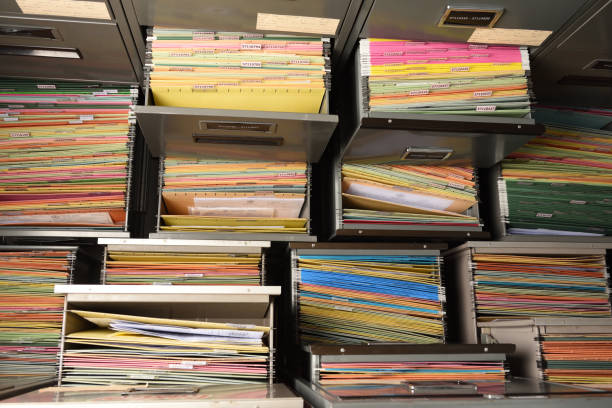
26 May Dangers of Inadequate Record-Keeping
Most companies would list land, buildings, property, and access to finances as the most valuable things they hold. However, information and records are some of their most vital assets. Recorded information is a critical component of conducting business transactions. In addition, information is essential for informing decisions, proving compliance, and avoiding penalties. Simply put, poor record-keeping is a risk to your organization.
Risks Associated with Inadequate Record-Keeping Practices
Record-keeping is an essential part of contractor management. The contract itself is the first and most important part of these records. Additions, deletions, or changes to the agreement must be recorded and related to the process. Many times, contracts are “filed away” without proper management. This can result in missed deadlines and extending contractor relationships beyond their term.
Mismanaged records lead to a host of other issues, including the following:
1. Missed Deadlines and Loss of Competitive Edge
Contractors may charge more for their products or services because contracts were not renewed at the current market value. Project defects can happen years after the project is complete. Your company’s reputation is at risk when contractor records are lost or not easily obtained, putting your firm at a competitive disadvantage.
2. Loss of Corporate History and Knowledge
Companies that have inadequate record-keeping practices often rely on the knowledge of key personnel when it comes to contractor management. When there is staff turnover, corporate learning is lost.
3. Workflow Inefficiencies
Without proper record-keeping, your workers will spend too much time looking for contractor agreements and records.
4. Poor Response Time
Response time is a big deal when contracts are involved. When unexpected events occur, like new regulations, bankruptcies, natural disasters, or emergencies, it is essential to have quick access to all contractor records.
5. Mishandling of Information Due to Insufficient Controls
Companies that do not have adequate record-keeping controls inadvertently mishandle employee information. In the worst-case scenario, employees may leak valuable details like pricing or sensitive employee data to competitors.
6. Lack of Regulatory Compliance
Poor management of contractor records can lead to missed updates and deadlines associated with regulations. There is also the possibility of overlooked contractual obligations.
7. Inadequate Cash Flow
Poorly managed contractor records can lead to missed contract payment due dates. Contractor over-payment can also occur if proper forms are not maintained.
Poor Record-Keeping Also Puts the Contractor at Risk
Every project has a certain level of uncertainty. Proper record-keeping is necessary for any company hiring contractors. It is equally essential for contractors themselves. Poor record-keeping and contract management are a risk to their business.
We outline some of the most common risks that contractors can avoid through better record-keeping.
1. Billing Practices
Poor record-keeping leads to missed billing and cash flow issues. Late billing will lead to late payments and are more prone to disputes.
2. Loss of Inventory
Tools and equipment misplaced or stolen from the job site are a business liability. Keeping properly documented inventory is critical to avoid delays, reduce operation costs, and minimize future expenses.
3. compliance Issues
It is the contractor’s responsibility to be compliant with all applicable regulations. Ensuring compliance requires diligence and ongoing record maintenance.
The lack of attention to safety regulations could lead to more accidents, increased investigations, higher insurance premiums, loss of clients and loss of reputation. Plus, lawsuits can arise when your company cannot produce documents during litigation or when requested by government agencies.
4. Late Projects
Attention to project schedules is a vital part of contractor record-keeping. Projects finished late often involve financial penalties or additional expenses. Keeping a daily record of work completed will help your company stay on track and be aware of any potential delays well in advance.
Record Retention
Good record-keeping includes preparing and maintaining reliable and accurate documents that provide evidence of every business transaction. Your document retention policy and procedures should meet all legal and regulatory storage requirements. Plus, many factors, including privacy laws, risk tolerance, the potential for dispute, and your own access needs, should be considered.



buy cialis online reviews
Posted at 02:21h, 28 DecemberHowdy! Do you use Twitter? I’d like to follow you
if that would be okay. I’m undoubtedly enjoying your blog and look forward to new updates.